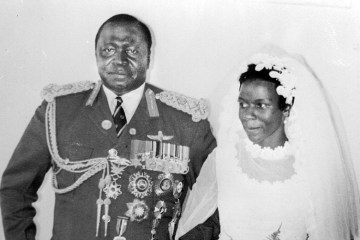By Our Reporter
Idi Amin Dada, Uganda’s notorious dictator, spent the last decades of his life in exile after being overthrown in 1979.
His rule, marked by brutality, mass killings, and economic turmoil, forced him to flee the country when Tanzanian forces, alongside Ugandan exiles, toppled his government.
Initially, Amin sought refuge in Libya under Muammar Gaddafi’s protection. However, his stay was short-lived, and he later moved to Saudi Arabia, where the royal family granted him asylum.
Settling in the city of Jeddah, Amin lived a quiet, secluded life away from the public eye.
Despite his past, he remained unapologetic about his regime, often stating that he had ruled Uganda with strong leadership.
By 2003, Amin’s health had deteriorated significantly. Suffering from high blood pressure and kidney failure, he was admitted to King Faisal Specialist Hospital in Jeddah in July of that year.
His condition worsened, leaving him in a coma. His fourth wife, Nalongo Madina, pleaded with the Ugandan government to allow him to return home, hoping he could spend his final days in his homeland.
However, President Yoweri Museveni rejected the request, stating that Amin would have to face justice if he returned. Fearing legal repercussions, his family chose to keep him in Saudi Arabia.
Amin remained on life support for weeks before passing away on August 16, 2003. His death marked the end of a man who had ruled Uganda with an iron fist, leaving behind a legacy of fear and suffering.
Unlike the grand ceremonies that often accompany the deaths of former leaders, Amin’s burial was simple and private. He was laid to rest in Ruwais Cemetery in Jeddah, with little public acknowledgment.
Despite his decades in exile, Amin never showed remorse for the atrocities committed under his rule. To some, he was a brutal dictator responsible for the deaths of hundreds of thousands.
To others, he was a nationalist leader who stood against foreign influence. His death elicited mixed reactions, with many Ugandans viewing it as the closing of a dark chapter in the country’s history.
However, his impact remains deeply embedded in Uganda’s political and social fabric, serving as a reminder of the dangers of unchecked power.
Have An Advert Or Article Out Of This Article You Want Us To Publish? Email: swiftnewsug@gmail.com

